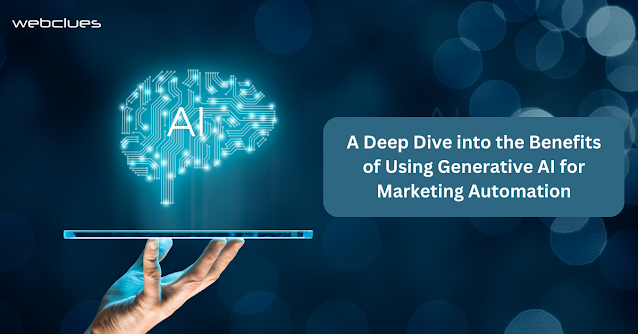Understanding Generative AI:
Generative AI refers to a subset of artificial intelligence technologies that enable machines to generate new data resembling authentic human-generated content. Unlike traditional AI systems that rely on predefined rules or patterns, generative AI models are trained on large datasets and learn to generate content autonomously. This technology encompasses various approaches such as generative adversarial networks (GANs), recurrent neural networks (RNNs), and transformer models like GPT (Generative Pre-trained Transformer).
Personalized Content Creation:
One of the key advantages of employing generative AI in marketing automation is its ability to create personalized content at scale. By analyzing vast amounts of consumer data, generative AI algorithms can generate tailored advertisements, product recommendations, email campaigns, and social media posts that resonate with individual preferences and behaviors. This personalized approach not only enhances customer engagement but also drives conversions and boosts brand loyalty.
Enhancing Creative Capabilities:
Generative AI empowers marketers to overcome creative limitations and explore new avenues for content creation. With AI-generated tools like text, image, and video synthesis, marketers can effortlessly generate compelling visuals, slogans, and storytelling elements. Moreover, generative AI enables the rapid prototyping of ad concepts and A/B testing of various creatives, allowing marketers to identify the most effective messaging strategies with minimal time and resources.
Streamlining Workflow Efficiency:
Automation lies at the core of marketing operations, enabling businesses to streamline repetitive tasks and allocate resources more efficiently. Generative AI automates various aspects of the marketing workflow, including content generation, scheduling, campaign optimization, and performance analytics. By leveraging AI-driven automation, marketers can free up time for strategic planning, creative ideation, and fostering meaningful customer relationships.
Adaptive Marketing Strategies:
In today's dynamic market environment, agility and adaptability are crucial for staying ahead of the competition. Generative AI equips marketers with real-time insights and predictive analytics, enabling them to adapt their strategies based on evolving consumer trends, market fluctuations, and competitor activities. By continuously refining targeting parameters and content strategies, businesses can optimize their marketing efforts for maximum impact and relevance. The strategic integration of Generative AI for Marketing will undoubtedly redefine the future of marketing and consumer engagement, driving sustainable growth and competitive advantage in the digital age.
Improving Customer Engagement:
Effective communication lies at the heart of successful marketing campaigns. Generative AI facilitates natural language processing (NLP) and sentiment analysis, enabling marketers to understand and respond to customer inquiries, feedback, and social media interactions in real-time. By leveraging AI-powered chatbots, virtual assistants, and conversational interfaces, businesses can provide personalized support, foster meaningful conversations, and enhance overall customer satisfaction.
Ensuring Compliance and Ethics:
As AI technology becomes increasingly pervasive in marketing, ensuring compliance with regulatory standards and ethical guidelines is paramount. Generative AI enables marketers to maintain transparency, fairness, and accountability in their automated processes. By implementing robust data privacy measures, bias detection algorithms, and ethical AI frameworks, businesses can mitigate risks associated with algorithmic decision-making and safeguard consumer trust and privacy.
Driving Innovation and Creativity:
Generative AI serves as a catalyst for innovation and creativity within marketing teams. By democratizing access to AI tools and fostering a culture of experimentation, businesses can empower employees to explore unconventional ideas, iterate rapidly, and push the boundaries of conventional marketing practices. Moreover, AI-driven insights and predictive analytics inspire data-driven decision-making and encourage marketers to embrace a growth mindset focused on continuous learning and improvement.
Conclusion:
Generative AI represents a paradigm shift in marketing automation, offering unprecedented opportunities for personalized engagement, creative expression, and data-driven decision-making. By harnessing the power of generative AI, businesses can unlock new levels of efficiency, effectiveness, and innovation in their marketing endeavors. As technology continues to evolve, the strategic integration of generative AI will undoubtedly redefine the future of marketing and consumer engagement. So, ready to propel your marketing into the future? WebClues Infotech is your key to unlocking the full potential of Generative AI for marketing.


0 Comments